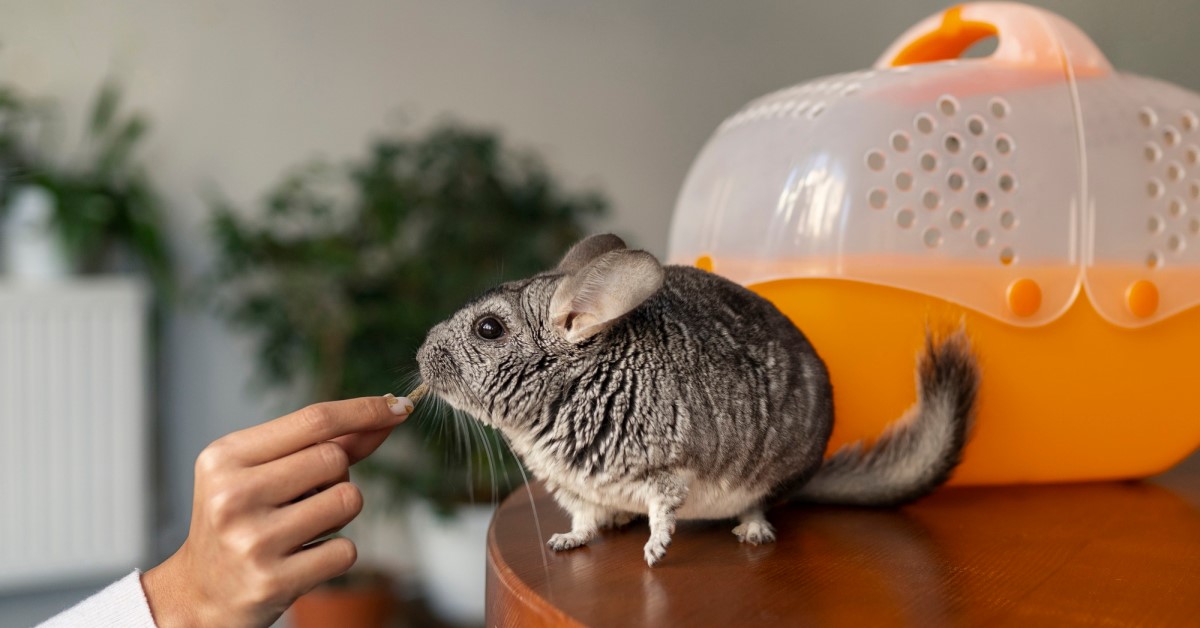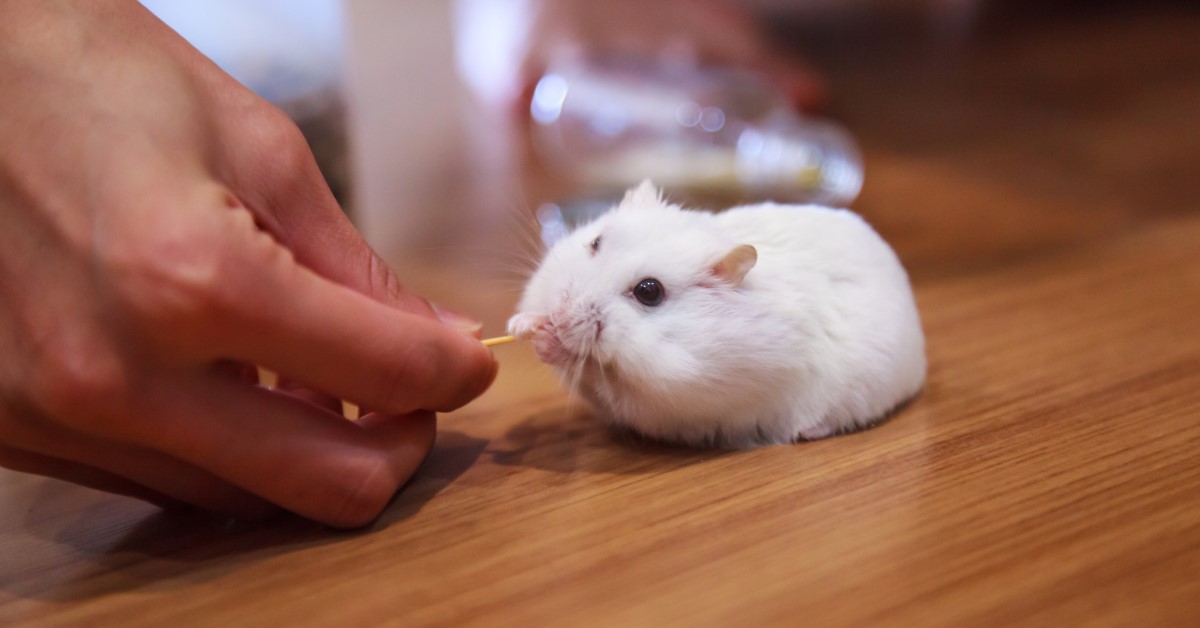Pocket Pets: Choosing a Small Pet and Quick Care Tips
Pocket pets are small enough to be easy to care for, and big enough for lots of fun! These small pets come in many shapes and sizes, including mice, rats, sugar gliders, gerbils, hamsters, chinchillas, and hedgehogs.

Are you looking for a pint-sized pet? Affectionately known as “pocket pets,” these popular animals are so small you could theoretically hold them in your pocket (although we don’t recommend this!) Pocket pets are usually tiny and can be kept in cages or aquariums. They are relatively easy to care for and can make excellent pets for families that prefer a pet smaller than a cat or dog. Learn more about the different types of pocket pets, and how to care for your new furry friend.
Popular Types of Small Pets
Before owning a pocket pet, it’s important to understand the animal’s temperament, care requirements, nutritional needs, and similar factors. Some of the most sought-after pocket pets include:
1. Mice
Mice are tiny, sociable creatures that can be domesticated due to their high level of intelligence. They are generally kept in a cage and despite common misconceptions, are fairly clean pets. Your pet mouse will enjoy chewing so provide ample chewable foods in their diet.
Pros:
- Relatively inexpensive
- Easy to house and entertain
- Do not require constant attention
Cons:
- Have relatively short lifespans
- Excessively chew on things
- Are notorious escape artists
2. Domesticated Rats
Like mice, domesticated rats are social, intelligent animals that make great family pets, especially families with children, as they are not likely to bite. However, rats prefer to live with other rats, meaning you should purchase at least two same-sex rats to be raised together.
Pros:
- Good with children
- Suitable for apartment life
- Sociable and good companionship
Cons:
- Must be kept with at least one other rat
- Has a short life expectancy of just 2 to 3 years
- Vet care for rats can be costly
3. Hamsters
Hamsters are playful critters known for their smooth coats and nocturnal nature. They require a cage with ample padding, a wheel for exercising, and access to a diet of pellets, with a mix of seeds and nuts. As a solitary animal, the hamster prefers to live alone and requires a compartment in which they can hide.
Pros:
- Fun to watch
- Don’t make much noise
- Do not require a lot of space
Cons:
- Are most active at night
- Can be quite delicate
- Should not be cuddled
4. Gerbils
Gerbils are known to be very friendly and are beloved for their entertaining, curious antics. Due to their social nature, it is often advised to keep gerbils in pairs. However, it’s best to avoid keeping two males together as they may fight. Gerbils are omnivores, meaning they feed on nuts and plants.
Pros:
- Have unique personalities
- Require inexpensive upkeep
- Interesting to watch and interact with
Cons:
- Require daily feeding and weekly enclosure cleanings
- Are not suitable for families with young children
- Can be noisy at night
5. Chinchillas
Chinchillas are generally quiet, gentle animals that prefer to be housed with at least one other chinchilla. These creatures are nocturnal, meaning a hiding area or nesting box is required where they can get adequate rest during the day. Chinchillas require dust baths several times per week and should be fed hay or grass-based pellets.
Pros:
- Have a long lifespan of 15 or more years
- Not susceptible to pests such as fleas
- Can live alone or in same-sex groups
Cons:
- Require a specific diet due to their delicate GI tracts
- Require plenty of items to chew
- Tend to throw bedding, hay, and poop outside their cages
6. Sugar Gliders
Sugar gliders are social pets that should be housed in groups as they can become depressed or develop unwanted behaviors without proper socialization. These animals need a fairly large enclosure where they can hide and jump from branch to branch. As an insectivore-omnivore, sugar gliders thrive on an insect-based pellet diet and small portions of fresh fruits and veggies.
Pros:
- Can live 10 to 15 years
- Are sociable and do not usually bite
- Tend to be clean and do not require baths
Cons:
- Are nocturnal and can be noisy at night
- Require a lot of socialization
- Need a specialty vet for care
7. Hedgehogs
Hedgehogs are quiet creatures that often shy away from human interaction but can be socialized with time and patience. They enjoy hiding and burrowing and require a large cage with plenty of paper bedding. Hedgehogs should undergo general wellness checks by a veterinarian at least twice a year, which requires mild sedation.
Pros:
- Relatively quiet
- Low maintenance and minimal health requirements
- Interactive at all hours of the day
Cons:
- Do not do well with litter training
- Are generally not sociable
- Should not be in homes with small children
8. Guinea Pigs
Guinea pigs are cute and fluffy animals that are fairly easy to care for and enjoy being held. As social animals, they do best when paired. Guinea pigs are herbivores, meaning they only eat plants, such as leafy vegetables and certain plant-based treats.
Pros:
- Very social
- Simple, inexpensive diet
- Require a low-maintenance habitat
Cons:
- Require a lot of attention
- Need a constant source of fresh grass
- Need ample space to explore
Choosing the Right Pocket Pet for You
There are many things to consider when choosing a pocket pet, such as the age of your children, if you have light sleepers in your home, how much room you have to dedicate to an animal, and if you have time to provide regular socialization and care. Overall, pocket pets can be amazing pets and companions if you have the money, time, and space to devote to these adorable critters.
Ready to start saving money on pet wellness care?
Then take a look at Mint Wellness, the pet wellness plan that provides fast reimbursement on routine pet care. Save on vaccinations, wellness exams, preventatives, dental, and more!
Learn More


